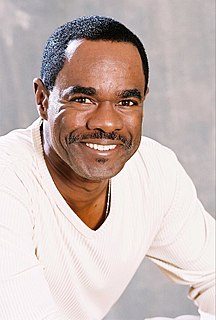A Quote by Sidney Poitier
The impact of the black audience is expressing itself. They look to films to be more expressive of their needs, their lives. Hollywood has gotten that message - finally.
Related Quotes
The audience does not need to tune themselves to you - you need to tune your message to fit them. Skilled presenting requires you to understand their hearts and minds and create a message to resonate with what's already there. Your audience will be significantly moved if you send a message that is tuned to their needs and desires. They might even quiver with enthusiasm and act in concert to create beautiful results.
If you take the '70s with Blaxploitation pictures, there was a proliferation of black-content films and motion pictures, television, stage plays and so forth at a time when Hollywood was in trouble financially, and it was cheaper to do black films to keep the lights on until they could reestablish themselves.
The message films that try to be message films always fail. Likewise with documentaries. The documentaries that work best are the ones that eschew a simple message for an odd angle. I found that one of the most spectacular films about the Middle East was 'Waltz With Bashir,' or 'The Gatekeepers,' or '5 Broken Cameras.'
The greatest book is not the one whose message engraves itself on the brain, as a telegraphic message engraves itself on the ticker-tape, but the one whose vital impact opens up other viewpoints, and from writer to reader spreads the fire that is fed by the various essences, until it becomes a vast conflagration leaping from forest to forest.
My films are expressive of a culture that has had the possibility of attaining material fulfillment while at the same time finding itself unable to accomplish the simple business of conducting human lives. We have been sold a bill of goods as a substitute for life. What is needed is reassurance in human emotions; a re-evaluation of our emotional capacities.
Speakers find joy in public speaking when they realize that a speech is all about the audience, not the speaker. Most speakers are so caught up in their own concerns and so driven to cover certain points or get a certain message across that they can't be bothered to think in more than a perfunctory way about the audience. And the irony is, of course, that there is no hope of getting your message across if that's all the energy you put into the audience. So let go, and give the moment to the audience.
I think people respond to truth. 'Straight Outta Compton' made $60 million over the weekend, right? That's not just a black audience. 'Empire' grew every single week. That's not just a black audience. Black culture is American culture, you know what I mean? They're becoming more and more one in the same.




































